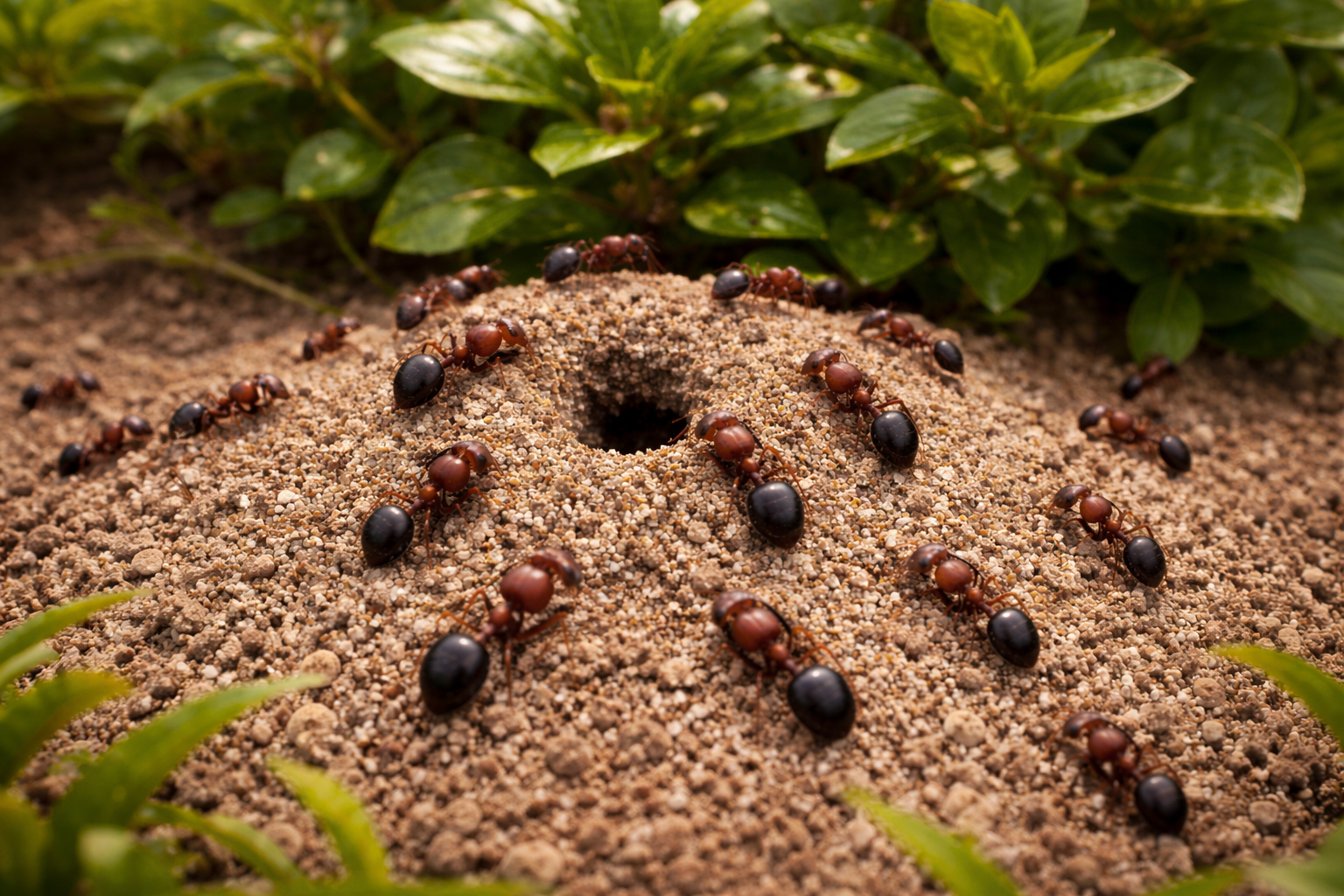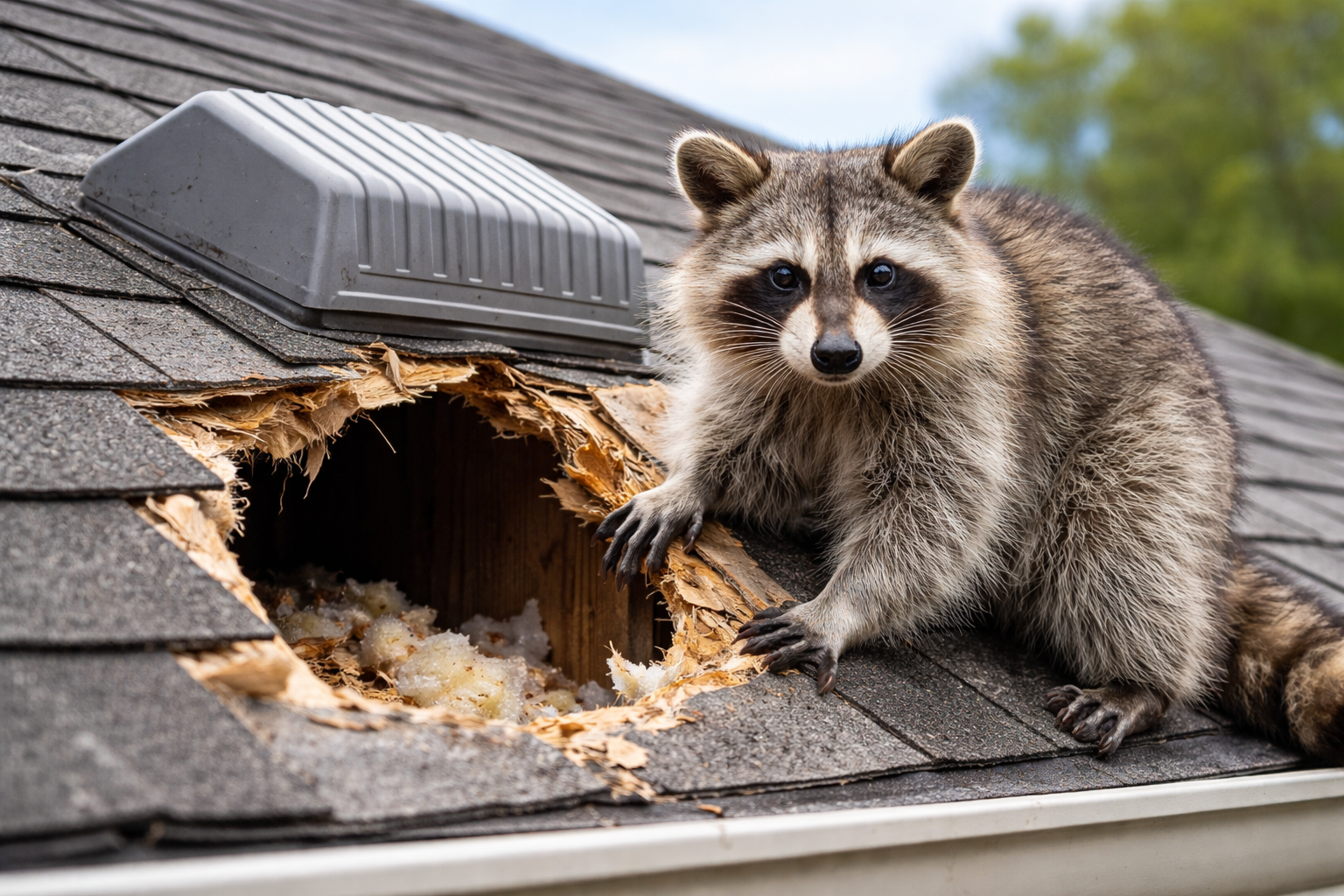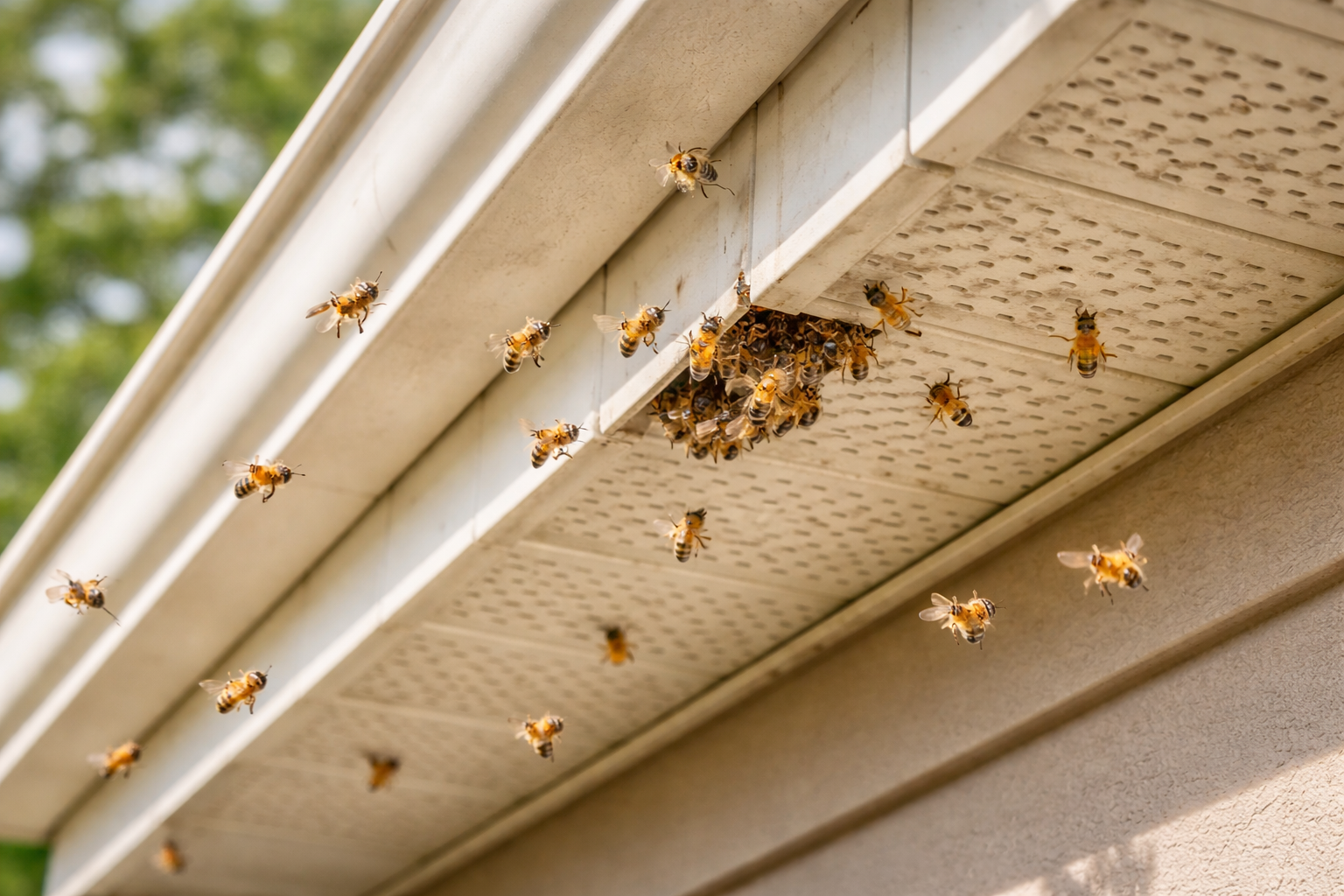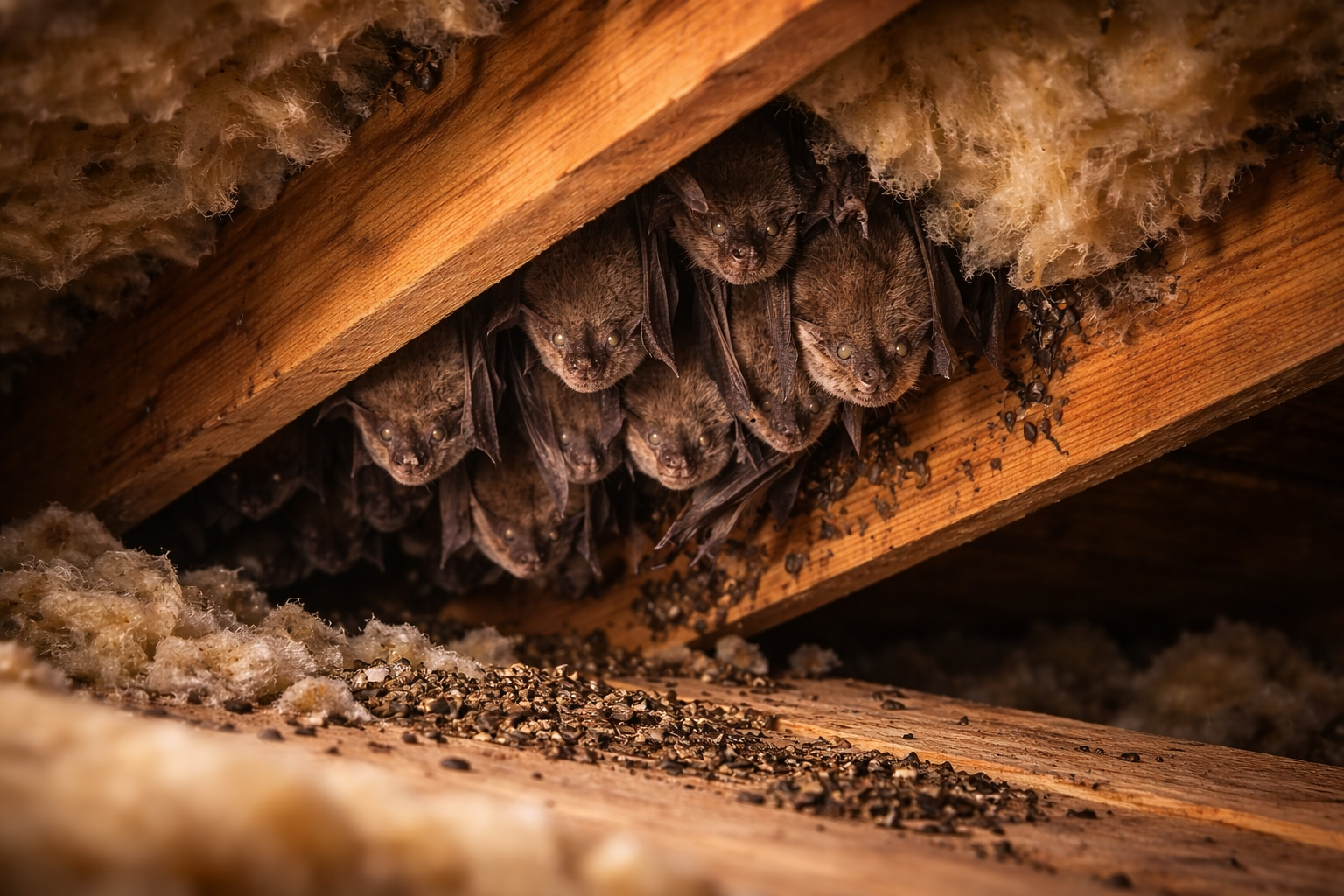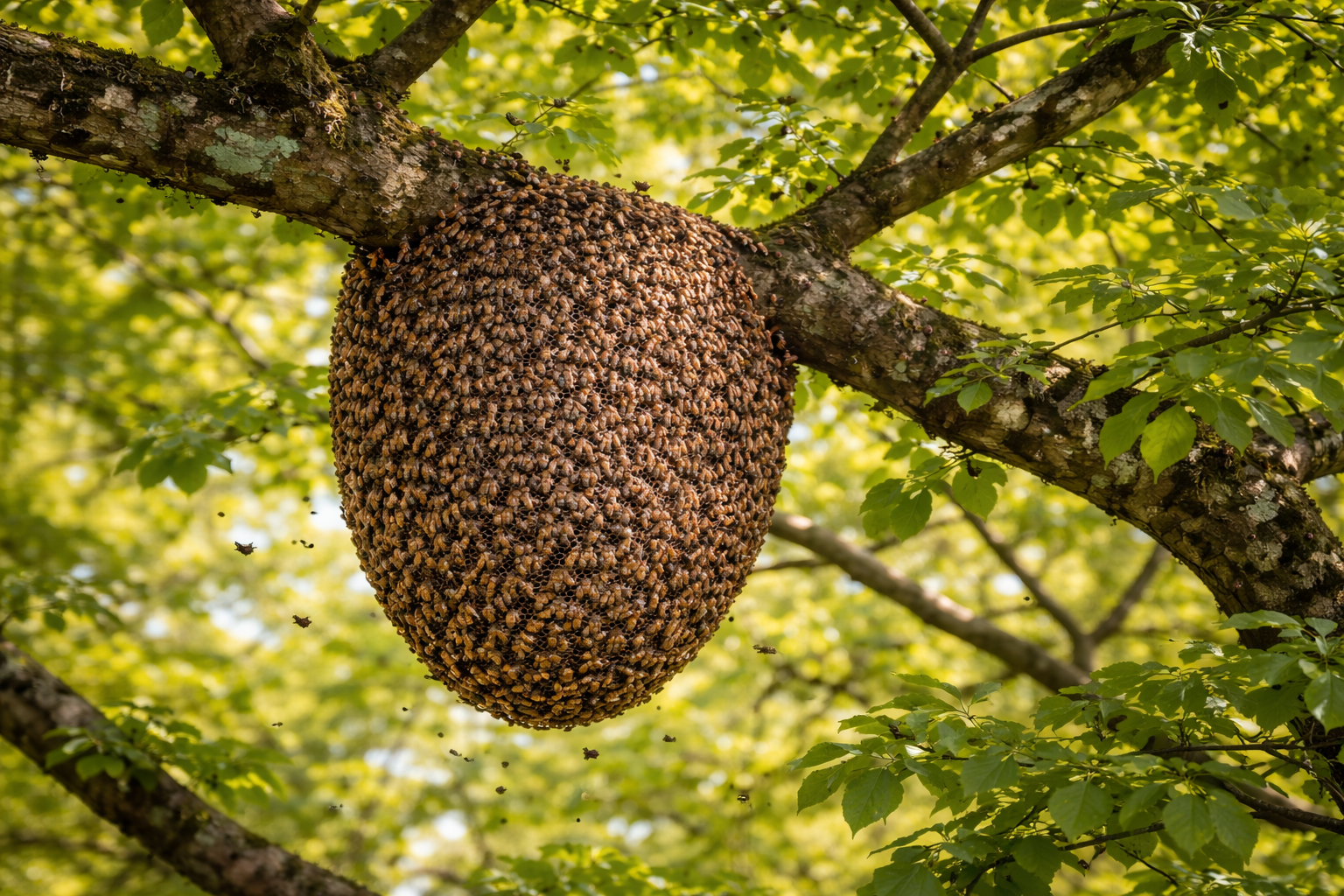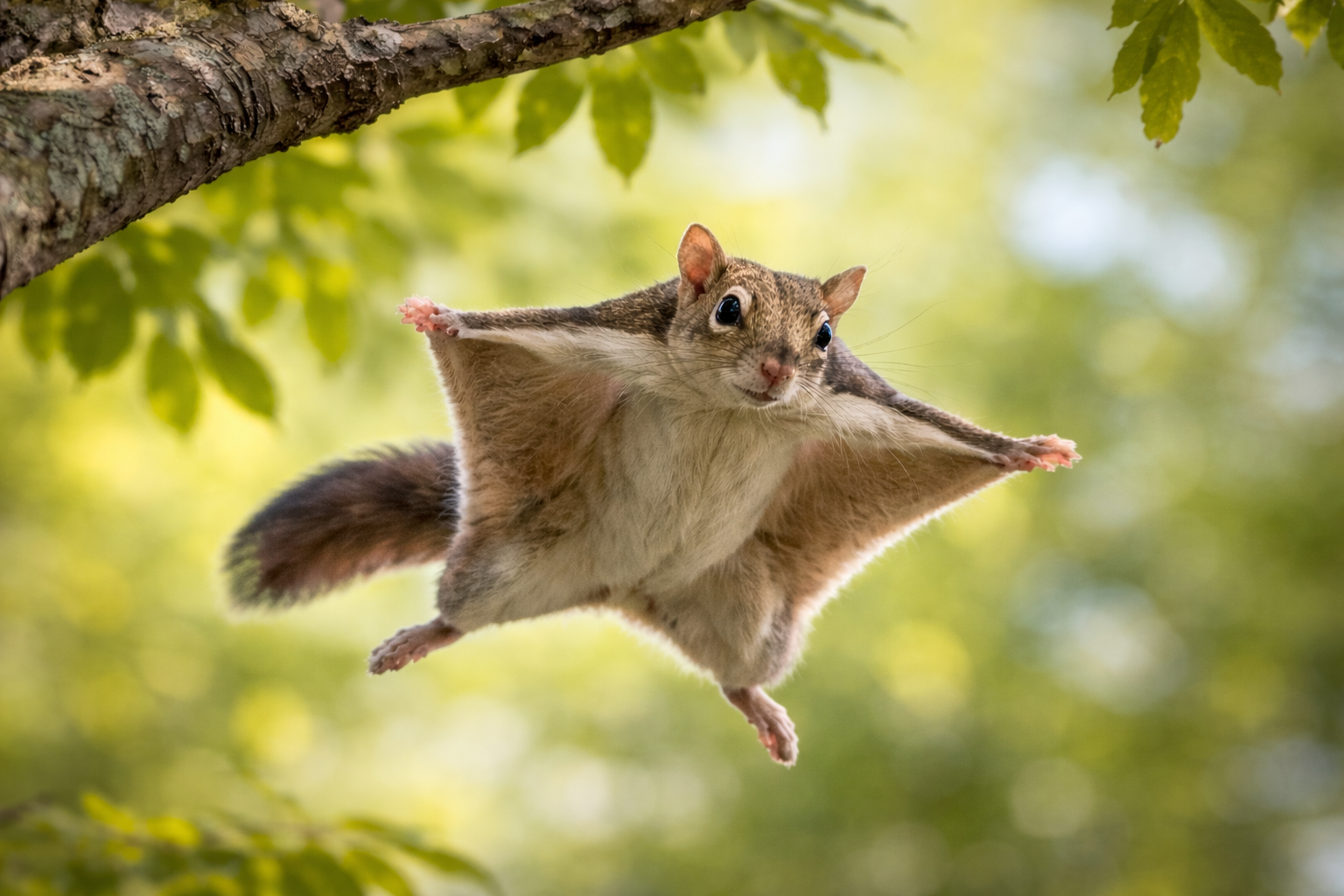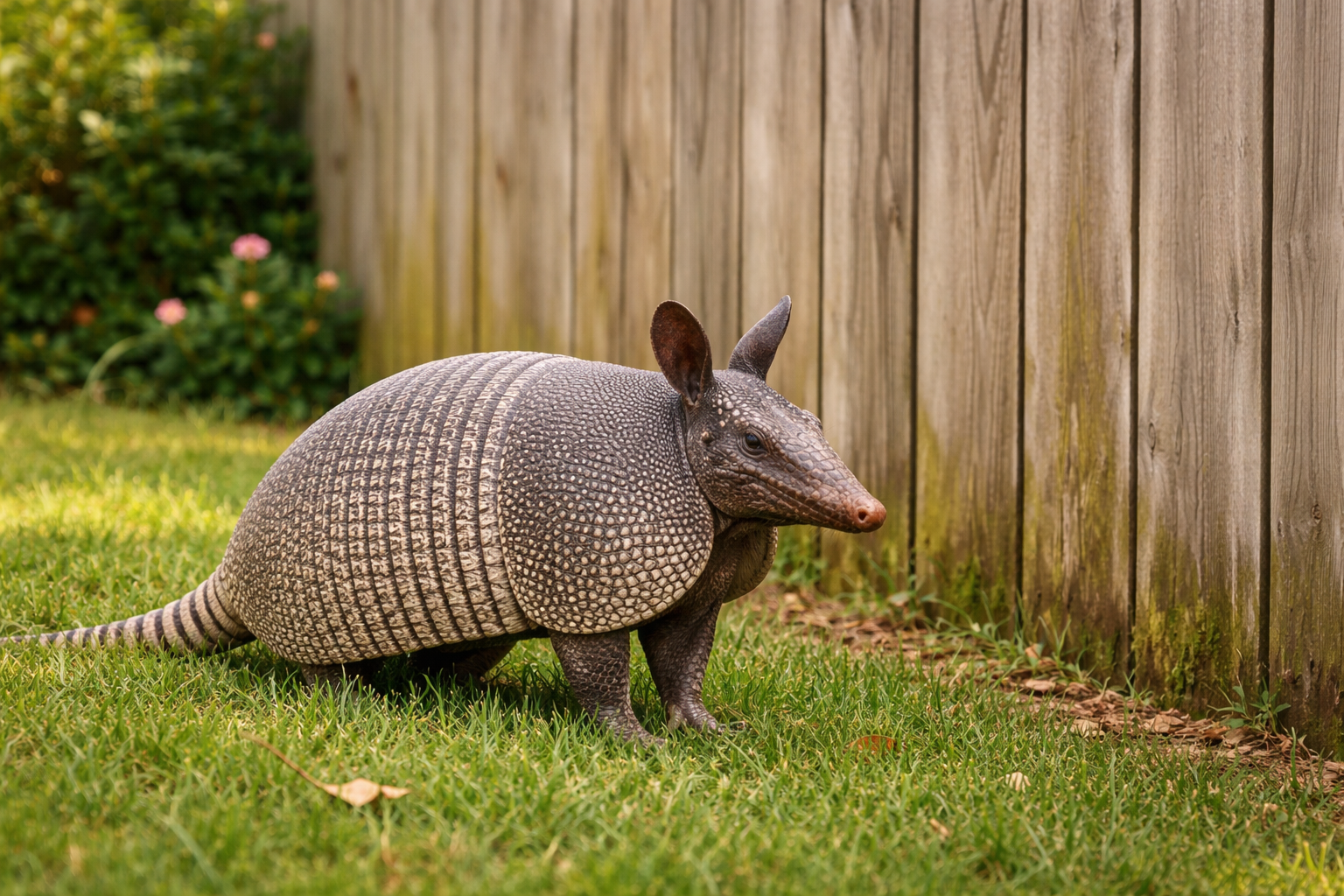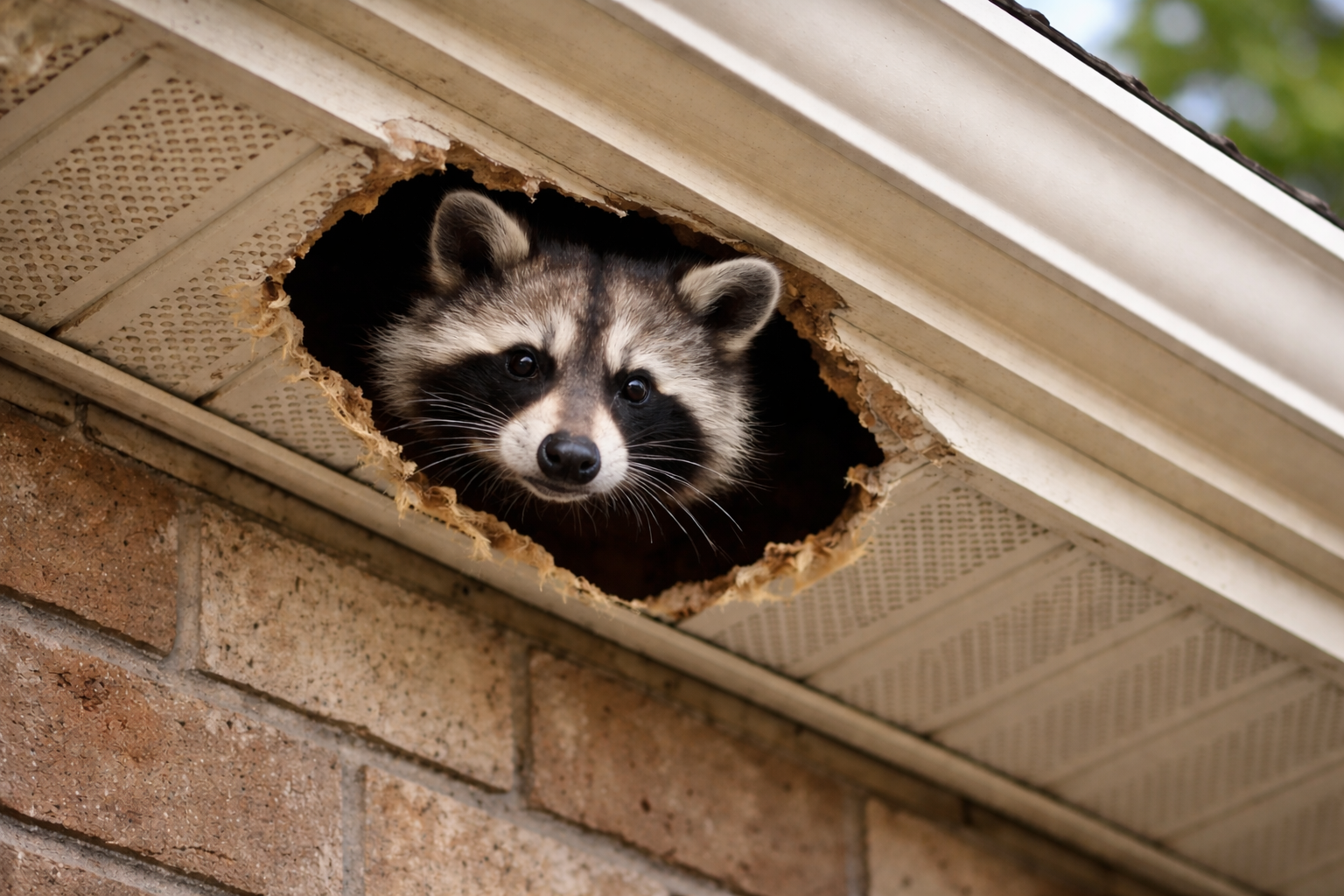Wasp Control in Florida Homes
Learn to identify wasp species, dangers of DIY sprays, and how to protect your home with expert pest control.
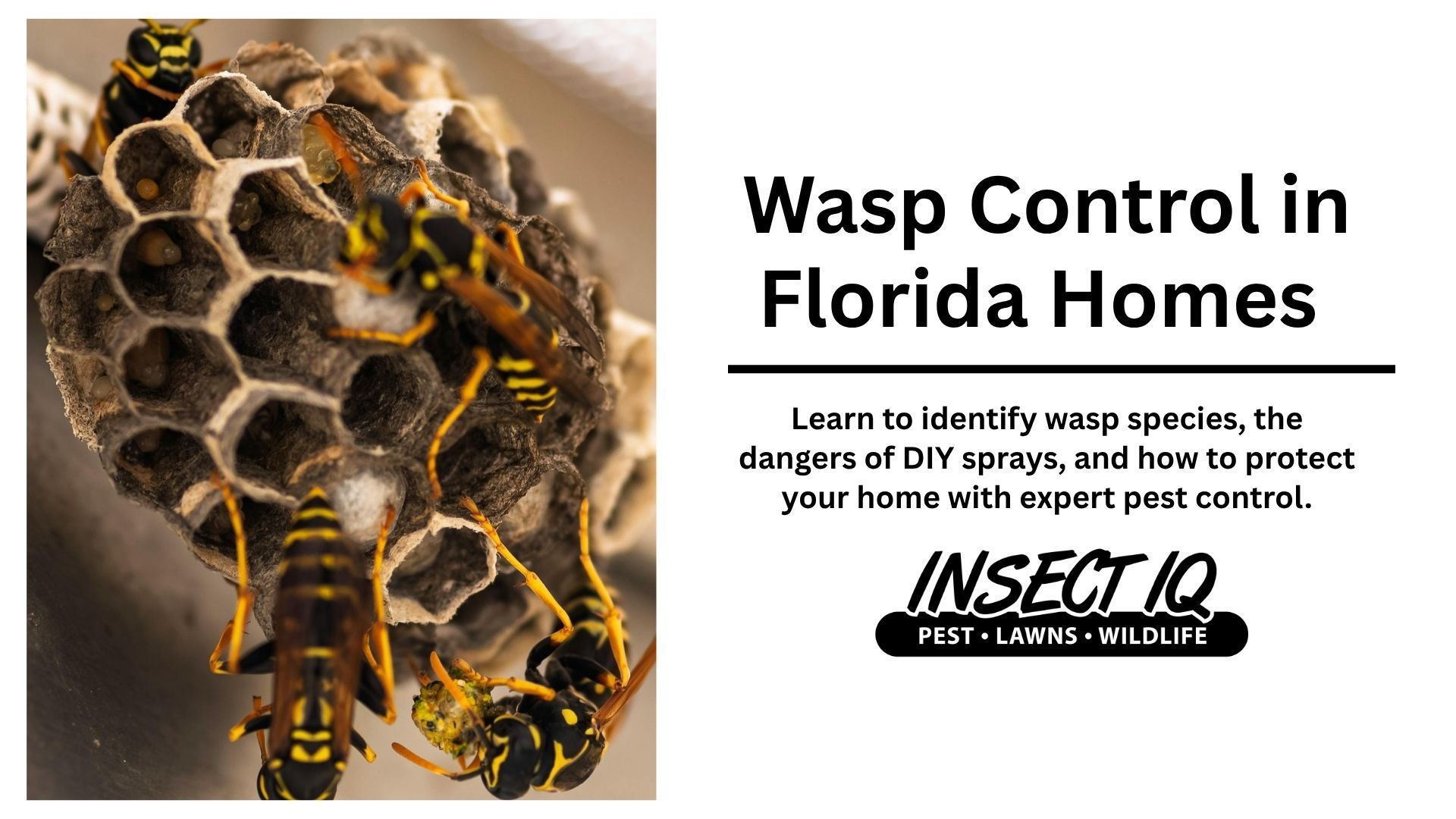
The Problem with Wasps Around Your Home in Florida
Living in Florida means sunshine, palm trees—and unfortunately, stinging insects like wasps. Wasps are more than just a backyard nuisance; they can be aggressive, territorial, and dangerous. Their stings can cause painful reactions, especially for children, pets, or anyone allergic to venom. Some wasps will even build nests in hidden corners of your home’s exterior, in attic vents, or under eaves, increasing the risk of unintentional contact. With multiple wasp species thriving in Florida's warm climate, it’s important to know what you’re dealing with—and how to deal with it safely.
Identifying Florida Wasps and Their Nests
Florida is home to a variety of wasp species, and not all of them behave the same way. Here’s how to identify which kind you might be dealing with—based on appearance, behavior, and nest style.
Paper Wasps
- Nest: Umbrella-shaped, open cells, typically found hanging from eaves, porch ceilings, or railings
- Behavior: Semi-aggressive when defending their nest
- Appearance: Slender body with long legs, usually reddish-brown or dark brown
Mud Daubers
- Nest: Mud tubes built on walls, ceilings, or in sheltered areas like garages or sheds
- Behavior: Very passive; rarely sting
- Appearance: Long, narrow “thread-waisted” body, typically metallic blue or black
Yellowjackets
- Nest: Enclosed, often built underground, inside wall voids, or under siding
- Behavior: Extremely aggressive, especially when their nest is disturbed
- Appearance: Small, compact body with bright yellow and black stripes
Hornets (Bald-Faced Hornets)
- Nest: Large, papery, football-shaped nest found in trees, bushes, or attached to buildings
- Behavior: Very aggressive near the nest
- Appearance: Larger than yellowjackets; black body with white facial markings
Being able to identify the type of wasp and its nest is key to understanding how dangerous the situation may be—and what steps to take next.
The Risks of DIY Wasp Sprays
It might seem like a simple fix to grab a can of wasp spray from your local hardware store, but this approach carries serious risks for both your health and safety.
- Toxic exposure: Instant-kill sprays contain strong chemicals that can irritate your lungs, eyes, and skin—especially in enclosed or poorly ventilated areas like garages or attics.
- No long-term solution: These sprays only kill the visible wasps. They don’t eliminate the colony, queen, or the root of the infestation.
- Aggressive retaliation: Spraying a nest can provoke a swarm of wasps. For species like yellowjackets or hornets, this can lead to multiple painful stings and a serious medical emergency.
- Recurring problems: Without treating the area or removing the nest properly, wasps will likely return and rebuild—sometimes even in the same spot.
While DIY methods may provide temporary relief, they don't offer a complete or lasting solution—and they can put you in harm’s way.
Professional Wasp Prevention with Insect IQ
Protecting your home from wasps requires more than a one-time fix. That’s why Insect IQ’s pest control service is designed to provide both immediate relief and long-term protection.
Our trained pest experts will:
- Remove active and forming nests from eaves, soffits, garages, and outdoor structures
- Apply safe, targeted treatments to keep wasps from rebuilding
- Sweep and monitor problem areas regularly to catch early signs of activity
- Treat for general household pests while also addressing stinging insects
This all-inclusive service keeps your home protected season after season and gives you peace of mind knowing experts are on your side.
Take Back Your Yard—Safely.
Don't let wasps keep you from enjoying your home. Trust
Insect IQ for professional pest control that covers more than just bugs—it protects your peace of mind.


